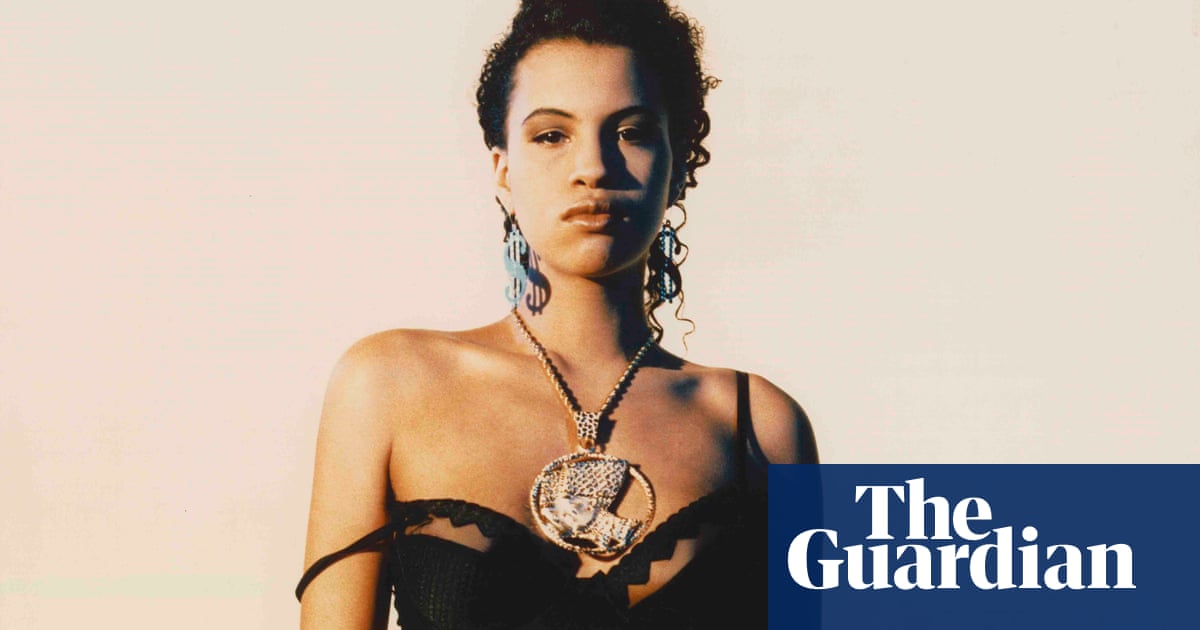Whenever I think of Neneh Cherry I remember the opening lines to Bristol band Maximum Joy’s 1981 single Stretch: “Don’t say maybe / Tell me yes! / Stay positive, stay strong / Hold safe, hold straight / Don’t terminate, no end.” Cherry’s Buffalo Stance, released in the winter of 1988, was a combustion engine, cackle and attitude, fusing the energies of punk funk, hip-hop and UK street soul. It helped usher into the pop charts a new wave of black British club culture – think Soul II Soul and Massive Attack. But it was made by a mixed-race woman, one born in Sweden, one who had the nerve – and verve – to perform it on Top of the Pops while eight months pregnant.
After the worldwide success of her first LP, Raw Like Sushi, Cherry’s recording career has been a stop-start affair, long silences punctuated by eye-catching collaborations with the likes of the Avalanches and Scandinavian noisenik jazz trio the Thing. Admirably, she marches to the beat of her own drum. It’s a sensibility, her memoir makes clear, that runs in the family. She spends less time talking about her records or even the bands she fronted (among them the wonderful, mostly-forgotten Float Up CP) than she does recalling dinners she cooked with her mother, or her stepfather’s fingers.
Why ever not? Those fingers belonged to Don Cherry, a protean, always-seeking American trumpeter, whose explorations in and on the fringes of jazz are still widely revered nearly 30 years after his death. He played with Ornette Coleman and John Coltrane, but, like many black American musicians, found an elusive freedom in Europe – appreciative audiences, air to breathe, new creative grammars to explore.
after newsletter promotion
Back again for shows in the States, he couldn’t help but turn to heroin, emptying the family coffers, getting himself arrested. His doting stepdaughter gradually cottons on, but is more anxious than enraged. She’s sensitive to his sensitivity, his inability to close his eyes to the ferocious conditions faced by his countrymen. Could music heal? She remembers him taking her for a walk to the New York Women’s House of Detention in Greenwich Village, outside which he reached into his pocket for a flute, then played a tune whose grace notes he hoped one of the notorious jail’s inmates – political activist Angela Davis – might be able to hear from her cell.
The book’s galvanising force, though, is her mother, Monika Karlsson, (better known as Moki). She had moved to Stockholm in 1962 to study fashion and clothes-making, gravitating towards the city’s now-legendary Golden Circle jazz club, and becoming pregnant by a Sierra Leone-born engineering undergraduate, Ahmadu Jah. In the years to come, and after she’d started building a life with Don Cherry, she worked as a painter, textile artist, musician and set designer. She was and needed to be thrifty, picking up raw materials at flea markets, creating colourful and fantastical work that augmented folk traditions with cosmic, almost visionary motifs.
According to Cherry, Moki lived by the motto: “The stage is home and home is a stage.” In the early 1970s she and her husband bought an old schoolhouse in the south of Sweden that they turned into a home, a performance hub, a shelter for friends and international artists. They thought culture couldn’t be reduced to artefacts or products; it could only prosper if it valued play, children, nature, the nurturing of social relationships. Their project, known as Organic Music, has been rediscovered by curators in recent years – as has, quite rightly, Moki’s own ultra-vivid art.
A Thousand Threads most thrums with life in Cherry’s accounts of her family’s bohemian travels, their ability to create “home in transit”. One minute they’re in Milan, another in Amsterdam. In Istanbul they’re accompanied by a drummer friend whose bags are stuffed with porn magazines he plans to sell on the black market. Cherry, whose formal schooling ended when she was 14, first crossed the Atlantic unaccompanied when she was five. Poor parenting? She depicts her upbringing as an education in improvisation. Many of her songs, she observes, were written at the kitchen table or stove, while “turning chicken in the pan, kids and people coming in and out, organised chaos”.
Chaos strafes this memoir too. Alcoholism, sexual violence, near-psychotic episodes. Racists in New York throw missiles at her mother. Cherry and husband, record producer Cameron McVey, get robbed at gunpoint. Close friends – among them Ray Petri, founder of the Buffalo fashion house – succumb to Aids. Cherry, street-smart and well connected, may be part of the “in crowd”, but she notices when she’s staying at the Chelsea Hotel that all the chambermaids are black. After Grenfell, she and McVey work as volunteer drivers for a Portobello Road restaurant that feeds 140 locals a day.
Some may find Cherry’s prose too brash, too unstructured. But there are winning memories here of joining female-DJ-only clubs in 80s Soho (alongside Bionic Rhona and novelist Rose Boyt); of picking up a young Biggie Smalls at a Bed-Stuy stoop and hearing him freestyle to a Massive Attack backing track as they drive over Manhattan Bridge; of CBGB’s where John Cale leaves the stage to go to the toilet but doesn’t return for an age, so that a wag remarks: “He’s downstairs somewhere, probably OD-ing on his ego.” A Thousand Threads searches for feelings transient and timeless, keeps keeping on, never says maybe.
